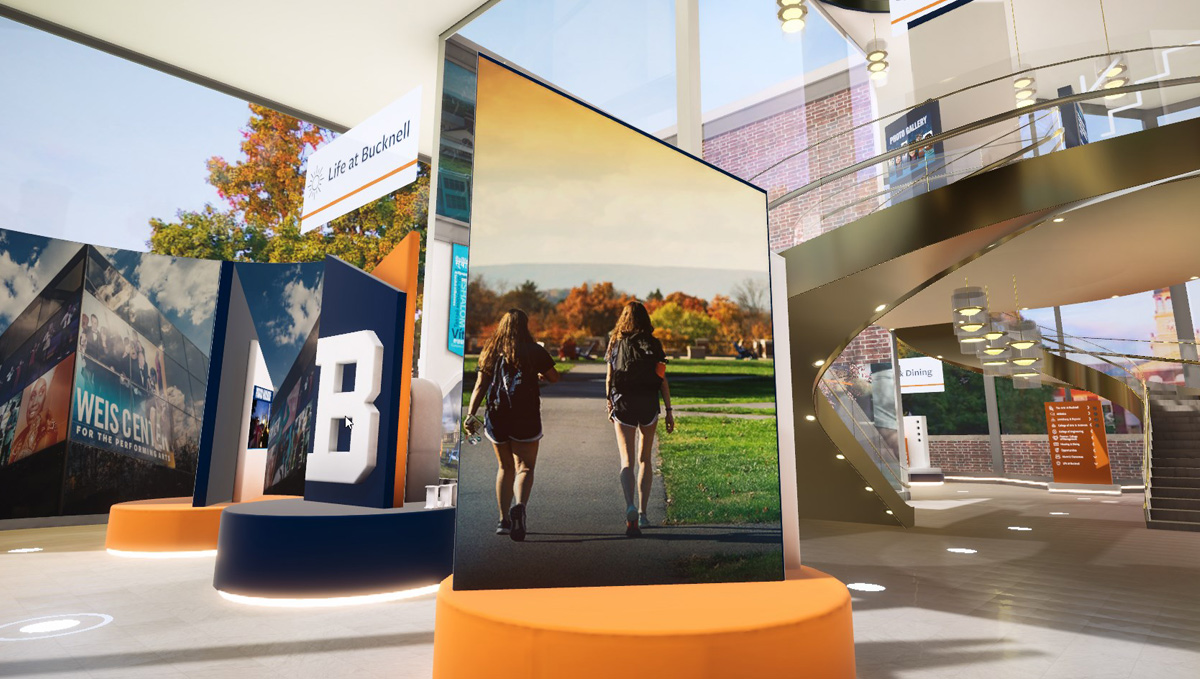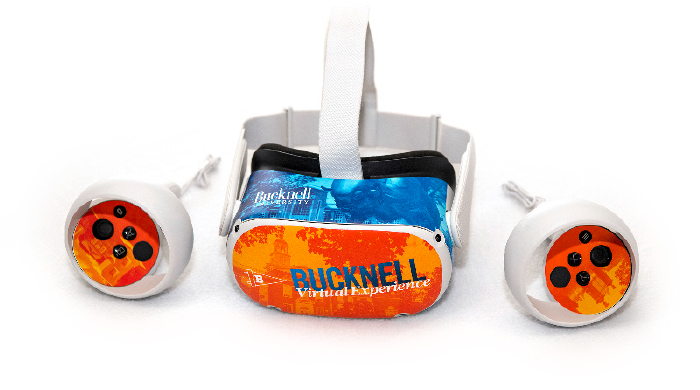
Setting Trends in Higher Ed

Comprising 10 interactive exhibits, the virtual experience features audio, photos and 360-degree videos woven into beautifully rendered environments that incorporate details from Bucknell’s real-life campus. Using Oculus headsets and controllers, visitors can gaze up at the iconic Bertrand Library bell tower, bask in the neon glow of the Campus Theatre marquee and even stand center court at Sojka Pavilion during a Bison basketball game.
Produced in collaboration with the digital agency Next/Now, the Bucknell Virtual Experience is one of the first of its kind in higher education.
“It’s the epitome of bringing a school to a student,” says Andrea Cova, a college counselor and high school program director at College Match Los Angeles, which supports low-income and first-generation high schoolers as they seek admission into the nation’s top universities. “When students are making decisions about college, the ability to see themselves on a campus makes a huge difference — especially when traveling isn’t an option.”
Cova is one of several counselors across the country who have stepped inside the Bucknell Virtual Experience via an Oculus headset delivered directly to her from the University. In April, College Match Los Angeles’ fresh cohort of high school juniors got the opportunity to explore the immersive world for themselves.
“We set up a ‘tech corner’ at our orientation event, where students could try out the technology and get introduced to Bucknell,” Cova says. “A lot of the students were excited by it because they hadn’t had a virtual experience before — and they hope that other universities can catch up.”